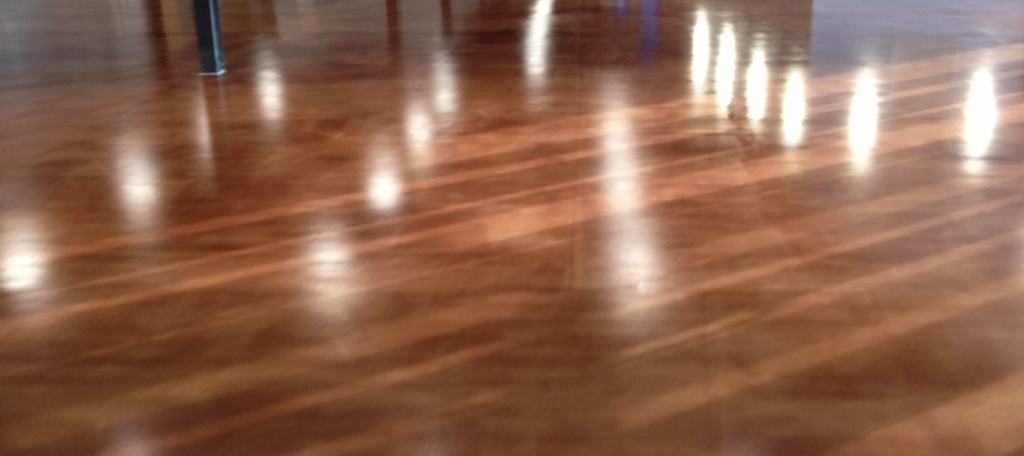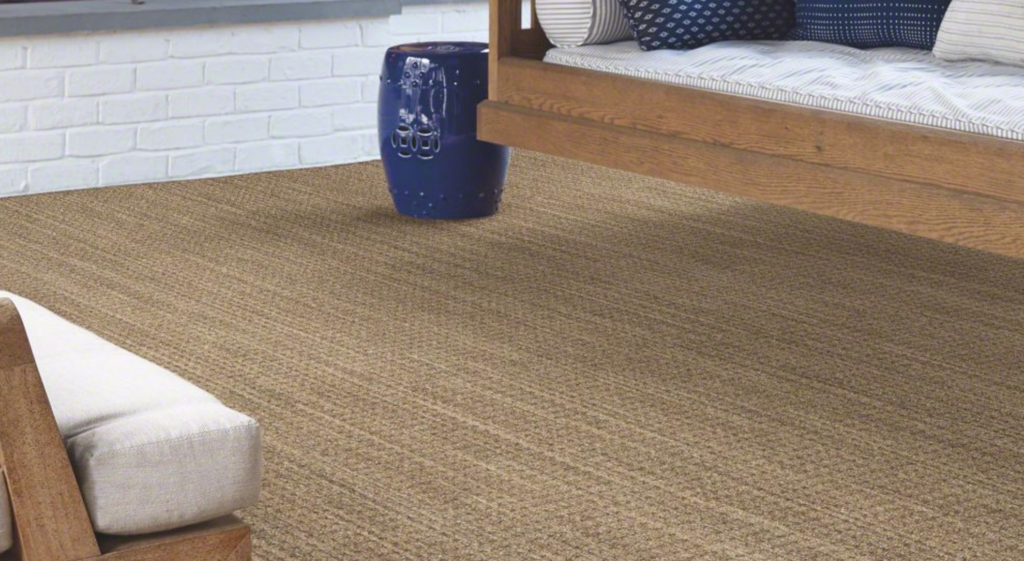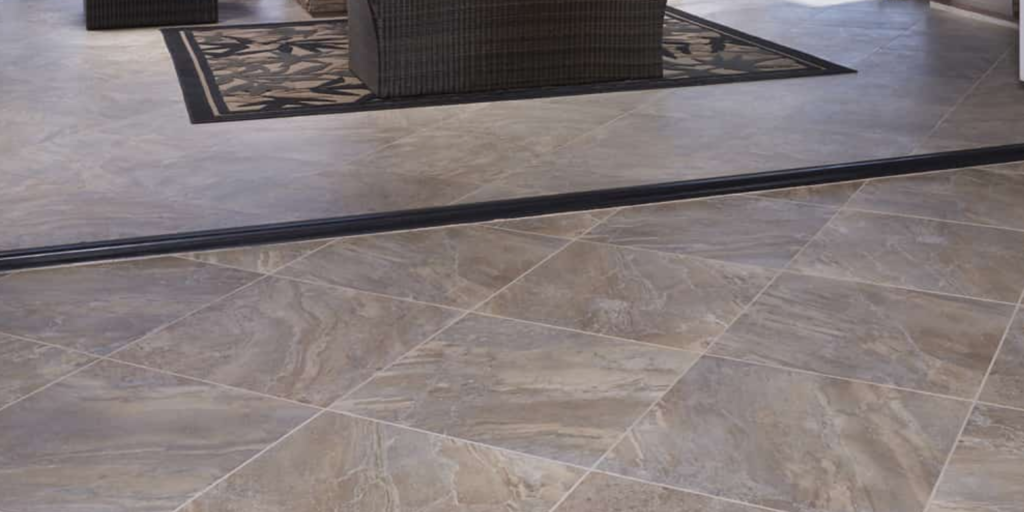Carpet or concrete, hardwood or tile – just a few of the many types basement floors to choose from. But choosing and upgrading flooring is an essential piece to a basement refinish or remodel project. Important things to consider is how the space will be used – a rental property, playroom, or home theater are all very different options that may require different types of flooring. Below are three types of flooring to consider for your next basement project.
Concrete

Refinished concrete floors are becoming increasingly popular. For some, working with what is already available is the most affordable and convenient option. Cracks and crevices can be easily repaired, and stain and Epoxy can be applied to take a drab concrete floor to the next level. Depending on the state of your floors (and your level of comfort with DIY), refinishing a concrete slab could possibly be an easy project to complete yourself. Before staining, be sure to thoroughly clean off all the dust and dirt from your floors, baseboards, and walls. After the staining is complete, seal the floor with Epoxy to protect your newly stained floors. Once you’re ready for decorating and styling the space, just add a few area rugs for warmth and comfort.
Carpet

Carpet is an option some people love and others despise. But carpet may be ideal for your finished basement, especially if considering turning it into a playroom for young kids. Before settling on carpet, however, it is important to completely finish a basement to prevent future water damage, mold, and mildew from ruining your carpet and other fixtures. Additionally, anti-microbial carpet padding can help prevent bacterial growth in your basement carpeting. You may choose to install a cheaper option if expecting a lot of foot traffic or pet hair. Another good solution are carpet tiles, which are easier to replace, especially if a carpet area is only slightly damaged.
Tile

Floor tiles are some of the most recommended materials for basement flooring because the base of tile slabs lift slightly above the concrete floor to allow for moisture to pass through. This option will reduce the possibility of mold and mildew growth. A benefit of tile is the limitless color and texture options available. Interlocking floor tiles can be easily replaced, cleaned, or even updated without a lot of hassle. They are also an affordable floor choice to help cut down the cost on your basement project.

